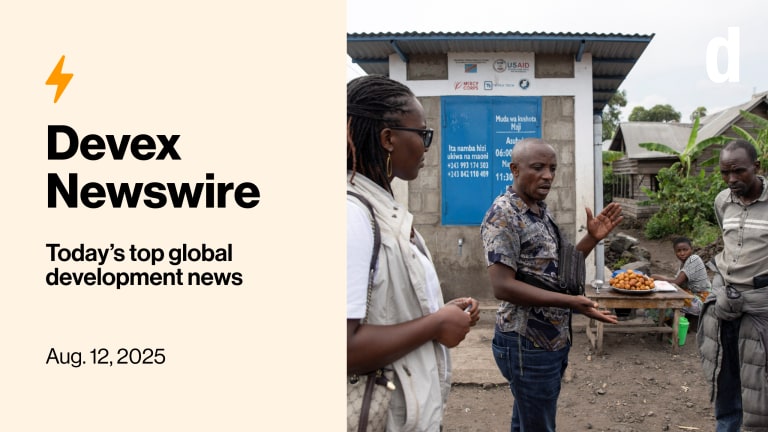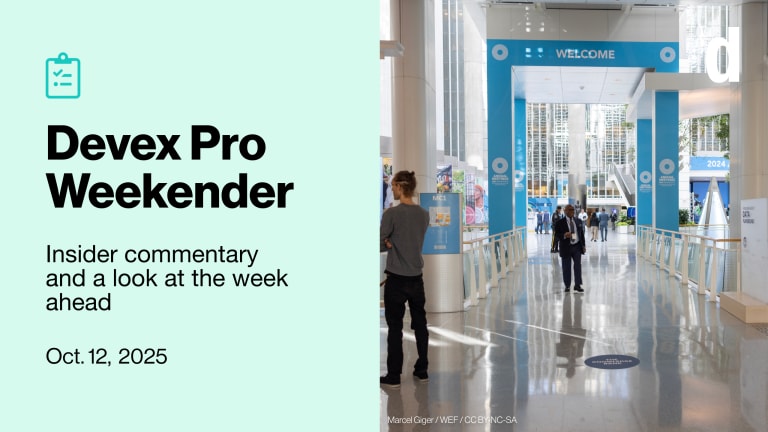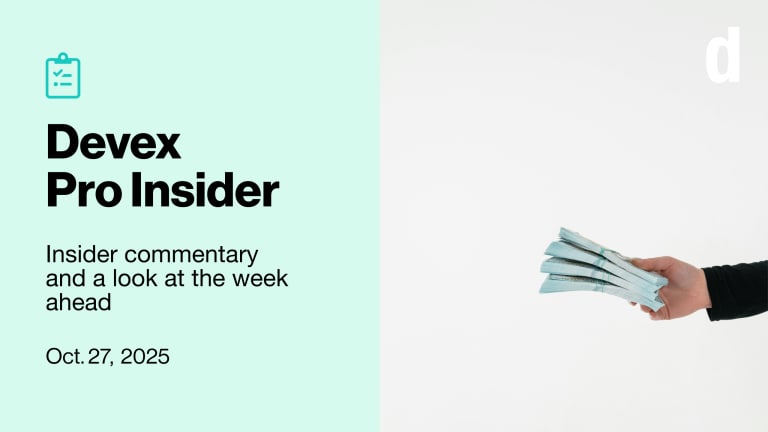
LONDON — As the armed conflict in Yemen enters its third year, humanitarian organizations are struggling to deliver aid to even a fraction of those in need due to financial transactions being blocked by international banks, according to a new report issued by the Humanitarian Policy Group at the Overseas Development Institute.
The report from the London-based think tank addresses the impact of “de-risking” on humanitarian response in the country, where 17 million people — more than 60 percent of the Yemeni population — are currently estimated to be food-insecure.
De-risking occurs when international banks deem a financial transaction to be too risky due to suspicions of terrorism or money laundering. Many take a cautious approach, causing significant problems for NGOs working in developing and especially conflict-affected countries. The ODI report claims banks have yet to make the criteria for transactions clear to humanitarian organizations, so accounts are closed or transactions delayed for months at a time with little to no warning.
“‘Risk’ is a very vague term when it comes to banks because there is no real interpretational understanding of what constitutes risk for the banking sector. What we know is that it is related to expectations of anti-money laundering as well as combating the financing of terrorism,” said Sherine el Taraboulsi-McCarthy, the report’s author.
“It’s not case-by case, it doesn’t target individuals necessarily, and there is a suspicion that de-risking has resulted in a wholesale debanking of certain countries or regions of countries that have been deemed ‘high-risk,’” said el Taraboulsi-McCarthy, potentially hampering any flow of humanitarian aid into the country.
Banking conflict exacerbates Yemen's cholera and famine
Underpinning a catastrophic cholera crisis and near-famine conditions is something even more fundamental: Yemen is out of cash. The Central Bank of Yemen now sits at the heart of the country's political crisis, leaving civil servants unpaid and an entire social safety net in collapse.
Compounded by a financial crisis and the weakening of the Yemen Central Bank, local and national NGOs — often the delivery partners for organizations such as Oxfam, Save the Children or Islamic Relief — are increasingly forced to rely on illegal money brokers to continue delivering aid to one of the world’s most severe humanitarian crises, feeding a burgeoning “black market” of food and fuel, the report states.
“The only way you can have access to cash transfer to Yemen today is through money brokers. A whole new class of money businesses have been established and more than doubled in number according to some organizations,” said el Taraboulsi-McCarthy.
“It’s created a potentially illicit cash transfer system because the banking system has become so marginalized,” she said. “The Central Bank can’t control the money brokers, they can’t control the exchange rates being used by the brokers, nor can they track the transactions, it is less transparent. It may be the only form of salvation for Yemenis, but in the long term you’re going to have a very weakened banking system, and you’ll have those brokers expanding without regulations or transparency,” she said.
Local and national organizations suffer
Speaking during a panel discussion on the issue at the ODI on Thursday, Imran Madden, Islamic Relief’s U.K. director, said de-risking has greatly hampered the organization’s aid operations in Yemen and that of their partners in-country.
“We’ve experienced the direct impact of de-risking. We had a global major bank pull the plug on our account, they gave us the option to close our account, we refused, but they then went ahead and closed it anyway,” he said.
“We were given no explanation as to why they decided to close the account. We imagine it’s a matter of them drawing a red line somewhere in terms of marking out their risk portfolio, and obviously we fell on the wrong side of that line. Completely irrational, not based on any evidence or experience.”
See more related topics:
► No clear path ahead for Yemen aid as 30-day lift of blockade expires
► 3 million Yemeni children born in war face uncertain future, UNICEF says
Madden explained that Islamic Relief subsequently put in place more robust financial systems, but is still experiencing difficulties in many of its humanitarian programs, namely where it works with local and national delivery partners. To combat this, Madden said the group is finding new, still-legal ways to reach its partners.
“Because we’ve developed more robust systems, we’ve been able to cope in many parts in the challenges of transferring currency, but one of the major things we’ve decided to do is transfer in Yemeni reals into the country rather than using our currency,” he said.
Using that route has taken some of the pressure off Islamic Relief, he said, adding that the group’s 20-year history in Yemen — its strong networks and resources — has also contributed. “We work in 18 out of 22 governorates, we’ve had that level of operational capacity that’s allowed us to transition into a functioning model within country,” he said.
But he added that local and national Islamic Relief partners are still feeling the effects of de-risking.
“With regard to the national humanitarian system, with our experience dealing with partners at the local and national level, we’ve seen clear reduction in their capacity and their ability to continue, and it’s largely due to the access of funds,” he said.
“This also comes at a time when we’re all committed to localization, that whole process of rebuilding and facilitating and recognizing the importance of that local capacity, now we’ve seen a reversal of that process,” he said.
A way forward?
Solutions at this stage are thin on the ground, el Taraboulsi-McCarthy said. The report outlines suggestions for de-compartmentalizing the humanitarian, development, and security efforts in Yemen to better track funds and prevent the creation of illicit cash transfer markets. The report adds that donor governments must put pressure on international banks to change their behavior, or else establish other humanitarian pathways, perhaps through humanitarian banks or using the World Bank as a guarantor for humanitarian funds.
The report also suggests a coordinated effort to revitalize the Yemen Central Bank — which was recently relocated by the Saudi-backed regime from Sana’a to Aden — in order to stabilize the national and local economy.
For humanitarian organizations, Madden said local and national partners can and should adapt, and admitted that while it is too early to think about reconstruction, all parties must recognize the need to make the humanitarian system more local, more sustainable, and more conflict resilient.
“We have seen in fact good examples of local and national NGOs developing coping mechanisms. One example: There are banks that specialize in microfinance, developed for a different time but it has been repurposed for the delivery of humanitarian aid,” he said. “So those local microfinance branches are able to push humanitarian systems to very local areas.”
Already declared by United Nations officials as the “worst humanitarian crisis” since 1945, efforts in Yemen run the risk of disregarding the country’s economic and humanitarian capacity. He said there are things “we can prepare for now to make sure it isn’t a matter of international humanitarian NGOs dominating the humanitarian scene; it has to be a matter of us recognizing the opportunities of building up local capacity, we must really try and do that,” he said.
Madden and el Taraboulsi-McCarthy agreed that humanitarian and development efforts must reflect a unified vision of a resilient Yemeni economy, for example, by designing programs to open up the ports and rebuild hospitals, schools, and water systems.
By doing this, Madden said “you are in fact creating jobs, you are reviving the economy, and also having a central bank that can access all parts of the country, that will be a huge part of reconstruction.”








